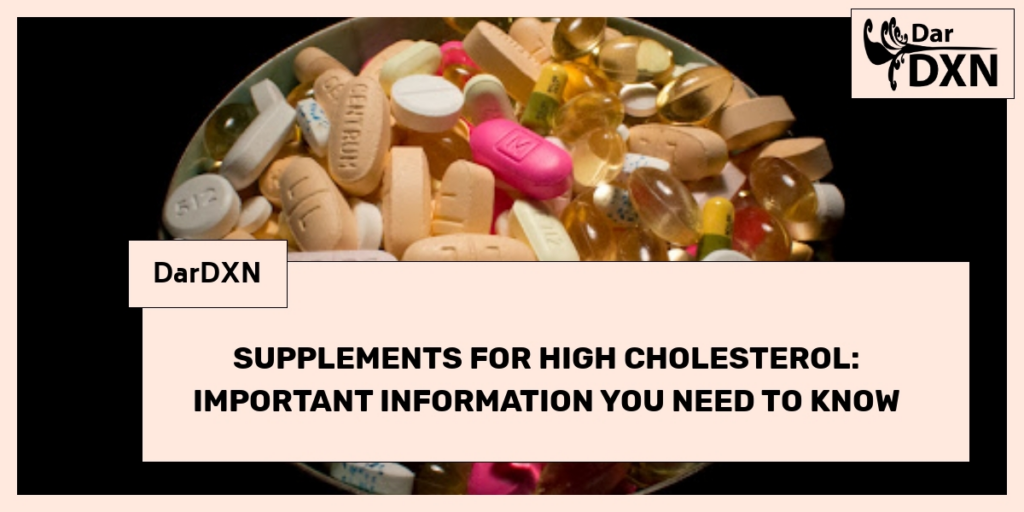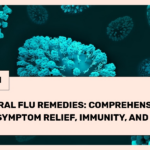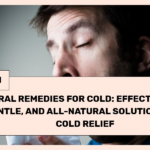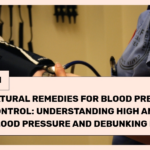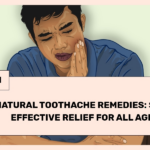When it comes to managing high cholesterol, many people turn to supplements as a natural solution. But what is the truth about the effectiveness of these herbal supplements for lowering cholesterol? Let’s take a closer look.
One popular option is bergamot supplements. These have been found to be effective in managing cholesterol levels. Vitamin D supplements also show promise in this regard. They can help lower cholesterol levels and improve overall heart health.
Another supplement that has gained attention is plant sterols. These supplements work by blocking the absorption of cholesterol in the intestines, leading to lower levels in the bloodstream.
Garlic supplements are another natural solution for controlling cholesterol. They have been shown to have a positive impact on cholesterol levels, reducing both total cholesterol and LDL cholesterol.
Niacin supplements are also worth considering. They can help raise HDL cholesterol, which is the “”good”” cholesterol, while lowering LDL cholesterol. However, it’s important to note that niacin supplements can have side effects and should be used under the guidance of a healthcare professional.
When it comes to choosing the right supplement, it’s important to consider the different types of cholesterol. There are two main types: LDL cholesterol, which is considered the “”bad”” cholesterol, and HDL cholesterol, the “”good”” cholesterol. Some supplements target one or both of these types to help lower overall cholesterol levels.
Omega-3 supplements are known for their heart-healthy benefits. They can help lower triglyceride levels and reduce inflammation in the body, which can have a positive effect on cholesterol levels.
It’s also worth comparing natural cholesterol-lowering supplements to statin medications. While statins are commonly prescribed to manage high cholesterol, natural supplements can offer a more holistic approach with fewer side effects.
When considering cholesterol-lowering supplements, it’s important to consult with a healthcare professional. They can provide guidance on the best options for your specific situation and any potential interactions with other medications you may be taking.
In conclusion, while cholesterol-lowering supplements can be a helpful addition to a healthy lifestyle, it’s important to approach them with caution. They can be a natural solution for managing high cholesterol, but they should not be seen as a substitute for medication. With the right guidance and a comprehensive approach, these supplements can play a role in improving heart health and lowering cholesterol levels.”
What important information should you know about supplements for high cholesterol?
“Supplements can be a helpful addition to a healthy lifestyle for managing high cholesterol. However, it is crucial to recognize that they should not be relied upon as the sole treatment. Instead, they should be used in conjunction with prescribed medications and lifestyle changes recommended by a healthcare professional.
Not all supplements are created equal, so it is important to choose a reputable brand and consult with a healthcare provider before starting any new supplement. This is because supplements are not regulated by the FDA, meaning their safety and effectiveness may vary. By consulting with a healthcare provider, individuals can ensure that the chosen supplement is appropriate for their specific needs and health conditions.
It is also important to consider potential interactions between supplements and other medications. Some supplements may interfere with the absorption or effectiveness of certain medications, so disclosing all medications and supplements being taken to a healthcare provider is crucial. This will allow for a comprehensive evaluation of potential interactions and the adjustment of treatment plans if necessary.
In summary, while supplements can be beneficial for managing high cholesterol, they should be used as part of a comprehensive treatment plan under the guidance of a healthcare professional. They should not replace prescribed medications or lifestyle changes. It is important to choose a reputable brand, consult with a healthcare provider, and disclose all medications and supplements being taken.”
What is the truth about the effectiveness of herbal supplements for lowering cholesterol?
The effectiveness of herbal supplements for lowering cholesterol is limited and inconclusive. Certain herbal supplements, like red yeast rice and garlic, may have a modest effect on cholesterol levels, but more research is needed. It’s important to note that herbal supplements are not regulated by the FDA, so their quality and purity can vary. They can also interact with medications and cause side effects, so consulting with a healthcare professional is crucial. Herbal supplements should not be relied upon as the sole treatment for lowering cholesterol and should be used alongside other lifestyle modifications and prescribed medications, if necessary.
What are the potential risks of taking cholesterol-lowering supplements?
Cholesterol-lowering supplements like red yeast rice, plant sterols, and niacin can pose risks, including liver damage, muscle pain and weakness, digestive issues, and interactions with other medications. Liver damage and the increased risk of liver disease are potential concerns. Myopathy, characterized by muscle pain and weakness, is especially a risk when taking statin medications. Digestive issues such as diarrhea, constipation, and nausea are also reported side effects. These supplements can interact with blood thinners or certain heart medications, leading to adverse effects. To assess potential risks and benefits, it is important to consult with a healthcare professional before starting any cholesterol-lowering supplement, especially if you have pre-existing conditions or are taking other medications. Monitoring liver function and muscle symptoms is crucial for ensuring safety.
What are the advantages of using bergamot supplements for managing cholesterol?
Bergamot supplements offer several advantages for managing cholesterol levels. Firstly, bergamot contains polyphenols that lower cholesterol by inhibiting an enzyme involved in its synthesis. Additionally, these supplements increase HDL levels while decreasing LDL and triglycerides, reducing the risk of heart disease. Moreover, bergamot supplements have antioxidant and anti-inflammatory properties, mitigating oxidative stress and inflammation, both risk factors for heart disease. In conclusion, bergamot supplements are a beneficial addition to a cholesterol management plan, lowering LDL levels, increasing HDL levels, and reducing the risk of heart disease.
What is the relationship between vitamin D supplements and cholesterol levels?
The relationship between vitamin D supplements and cholesterol levels is not fully understood. Some studies suggest that vitamin D may increase levels of high-density lipoprotein (HDL) cholesterol, which is considered “good” cholesterol, and help remove low-density lipoprotein (LDL) cholesterol, or “bad” cholesterol, from the bloodstream. However, conflicting results have been found in other studies, with some showing no significant impact on cholesterol levels. It is important to note that vitamin D supplements should not be used as a primary treatment for high cholesterol. Individuals should consult with their healthcare provider for personalized advice. Maintaining a healthy lifestyle, including a balanced diet, regular exercise, and managing weight, remains the most effective way to manage cholesterol levels.
What are the top-rated supplements for naturally lowering cholesterol and how do they work?
“Omega-3 fatty acids, plant sterols, and soluble fiber are the top-rated supplements for naturally lowering cholesterol. Omega-3 fatty acids, found in fish oil supplements, reduce triglyceride production in the liver and increase HDL cholesterol levels. Plant sterols, found in certain margarines and supplements, compete with cholesterol for absorption in the intestines, resulting in lower overall cholesterol levels. Soluble fiber, found in foods like oats, barley, and fruits, binds to LDL cholesterol and prevents its absorption into the bloodstream.
It’s important to note that these supplements should not replace prescribed medication or a healthy lifestyle. Consulting with a healthcare professional before starting any new supplement regimen is always recommended.”
What is the potential of plant sterol supplements for lowering cholesterol?
Plant sterol supplements can lower cholesterol levels by competing with cholesterol for absorption in the intestines. This reduces the amount of cholesterol absorbed into the bloodstream, leading to lower levels of LDL (bad) cholesterol. Numerous studies support the effectiveness of plant sterol supplements in lowering cholesterol. However, they are most effective when combined with a healthy diet and lifestyle changes, such as reducing saturated fat intake and increasing physical activity. It is recommended to consult with a healthcare professional before starting any new supplement regimen, although plant sterol supplements are generally considered safe. While they can be a useful addition to a cholesterol-lowering plan, they should not be relied upon as the sole method for managing cholesterol levels.
How do these supplements work to reduce cholesterol quickly and effectively?
“These supplements target the underlying causes of high cholesterol levels, effectively reducing cholesterol. They contain ingredients that lower LDL (bad) cholesterol and increase HDL (good) cholesterol. Common ingredients include plant sterols, omega-3 fatty acids, soluble fiber, and antioxidants.
For example, plant sterols block the absorption of cholesterol in the intestines, leading to lower LDL cholesterol levels. Omega-3 fatty acids found in fish oil supplements reduce triglyceride levels and decrease inflammation. Soluble fiber supplements, like psyllium husk, lower LDL cholesterol by binding to cholesterol in the digestive system and preventing absorption. Antioxidants, such as vitamin C and E, prevent the oxidation of LDL cholesterol, a key step in plaque development in the arteries.
These supplements provide a comprehensive approach to reducing cholesterol levels by combining these ingredients. However, it’s important to note that they should not replace a healthy lifestyle and medication prescribed by a healthcare professional.”
How do garlic supplements provide a natural solution for controlling cholesterol?
Garlic supplements can naturally control cholesterol by reducing LDL (bad) cholesterol levels and increasing HDL (good) cholesterol levels in the body. This is primarily because of allicin, a compound found in garlic that has been proven to lower cholesterol. Allicin inhibits cholesterol production in the liver and improves its ability to break down cholesterol. It also prevents the oxidation of LDL cholesterol, which stops plaque formation in the arteries. Additionally, garlic supplements have anti-inflammatory properties that reduce inflammation in blood vessels, promoting cardiovascular health. Regularly taking garlic supplements helps maintain healthy cholesterol levels and lowers the risk of heart disease. However, it’s important to remember that garlic supplements should not be the sole method of controlling cholesterol. A balanced diet, regular exercise, and consultation with a healthcare professional are also crucial for managing cholesterol levels.
What are the advantages of using niacin supplements for controlling cholesterol?
Niacin supplements increase levels of high-density lipoprotein (HDL) cholesterol, commonly known as “good” cholesterol, which helps remove low-density lipoprotein (LDL) cholesterol, also known as “bad” cholesterol, from the bloodstream. This can reduce the risk of heart disease and lower overall cholesterol levels. Niacin can also lower triglyceride levels, a type of fat in the blood. However, it is important to note that niacin supplements can have side effects such as flushing, itching, and liver damage, so they should only be taken under the guidance of a healthcare professional. To optimize cholesterol control, it is important to maintain a healthy lifestyle with a balanced diet and regular exercise in combination with niacin supplementation.
What are the potential side effects of cholesterol-lowering supplements?
Cholesterol-lowering supplements, such as plant sterols, red yeast rice, or fish oil, can help reduce cholesterol levels in some individuals. However, they are not without potential side effects. Commonly reported side effects include digestive issues like diarrhea, constipation, and stomach discomfort. Muscle aches or weakness may also occur, although this is more commonly associated with statin medications rather than supplements. Some cases have reported liver problems, such as elevated liver enzymes. It is important to note that these supplements can also interact with certain medications, such as blood thinners or statins, increasing the risk of adverse effects. Therefore, it is crucial to consult with a healthcare professional before starting any cholesterol-lowering supplements to ensure they are safe and suitable for individual circumstances.
What is the recommended dosage for cholesterol-lowering supplements?
The dosage for cholesterol-lowering supplements varies depending on the specific supplement and individual needs. Consult with a healthcare professional to determine the appropriate dosage for your situation. Common cholesterol-lowering supplements include plant sterols, red yeast rice, and omega-3 fatty acids. Plant sterols are typically recommended at a dose of 2 grams per day, while red yeast rice can be taken at a dose of 600-1200 milligrams twice daily. Omega-3 fatty acids are often recommended at a dose of 1-4 grams per day. However, note that these dosages are general guidelines and may be adjusted based on factors such as age, overall health, and other medications. Always consult with a healthcare professional before starting any new supplement regimen.
How long does it typically take to see results from cholesterol-lowering supplements?
Results from cholesterol-lowering supplements typically appear in 4-6 weeks, although the timeframe may differ based on the individual and supplement used. Cholesterol-lowering supplements should not replace prescribed medication or lifestyle changes. They are meant to complement a healthy diet and exercise routine. Consult a healthcare professional before starting any cholesterol-lowering supplement to ensure safety and suitability. Regularly monitor cholesterol levels and adjust the supplement dosage or treatment plan as necessary.
What are the different types of cholesterol and how do supplements target them?
“The two main types of cholesterol are low-density lipoprotein (LDL) and high-density lipoprotein (HDL). LDL cholesterol, also known as “”bad”” cholesterol, can build up in the arteries and increase the risk of heart disease. On the other hand, HDL cholesterol is considered “”good”” cholesterol because it helps remove LDL cholesterol from the bloodstream.
Supplements like statins, fibrates, and niacin target cholesterol levels by affecting the production, absorption, and breakdown of cholesterol in the body. Statins reduce LDL cholesterol levels by inhibiting an enzyme involved in cholesterol production. Fibrates primarily target triglycerides, another type of fat in the blood, but can also slightly increase HDL cholesterol levels. Niacin, a B vitamin, lowers LDL cholesterol and triglycerides while raising HDL cholesterol.
Combining these supplements with lifestyle changes, such as a healthy diet and regular exercise, can effectively manage cholesterol levels. Before starting any cholesterol-lowering supplement, it is important to consult with a healthcare professional to ensure it is appropriate for individual needs and to monitor for potential side effects.”
What role do omega-3 supplements play in lowering cholesterol?
“Omega-3 supplements can lower cholesterol levels by increasing HDL (good) cholesterol and reducing LDL (bad) cholesterol. Specifically, EPA and DHA, omega-3 fatty acids, have anti-inflammatory properties and can lower triglyceride levels in the blood, thereby improving cholesterol levels.
Omega-3 supplements increase the production of HDL cholesterol, which removes LDL cholesterol from the bloodstream and transports it to the liver for excretion. Additionally, omega-3 fatty acids reduce the production of LDL cholesterol in the liver. This dual mechanism lowers overall cholesterol levels and promotes a healthier lipid profile.
It’s important to note that omega-3 supplements should not be relied upon as the sole treatment for managing cholesterol. A healthy lifestyle, including a balanced diet, regular exercise, and avoiding smoking and excessive alcohol consumption, is crucial for maintaining optimal cholesterol levels. Omega-3 supplements should be used as part of a comprehensive approach to managing cholesterol and should be taken under the guidance of a healthcare professional.”
How do statin medications compare to natural cholesterol-lowering supplements?
“Statin medications, prescribed by doctors, lower cholesterol levels by inhibiting an enzyme in the liver. This reduces cholesterol production and effectively lowers cholesterol levels. However, statins may cause side effects such as muscle pain, liver damage, and digestive issues.
Natural cholesterol-lowering supplements, on the other hand, are over-the-counter products made from natural ingredients. These supplements contain plant sterols, omega-3 fatty acids, and soluble fiber, all of which have cholesterol-lowering properties. However, their effectiveness varies and they may not be as potent as statins.
While natural supplements generally have fewer side effects, they may interact with certain medications or lack scientific evidence supporting their efficacy. Therefore, it is important to consult with a healthcare professional before starting any cholesterol-lowering regimen. They can determine the most appropriate approach based on individual health needs and potential risks.”
What is the most comprehensive guide to finding the best natural supplement for high cholesterol?
To find the best natural supplement for high cholesterol, consult a healthcare professional or registered dietitian. They can provide personalized recommendations based on your health needs and goals, reviewing your medical history, current medications, and other factors that may impact cholesterol levels. Natural supplements are not a substitute for prescribed medication or lifestyle changes, but red yeast rice, garlic, and fish oil have shown potential in lowering cholesterol levels. Choose high-quality supplements from reputable brands and follow recommended dosages. Research reputable sources, like medical journals and trusted health websites, for information on the effectiveness and safety of natural supplements for high cholesterol.
What scientific evidence supports the use of soluble fiber supplements for managing cholesterol?
Scientific evidence supports the use of soluble fiber supplements as an effective strategy for managing cholesterol. Soluble fiber effectively lowers LDL cholesterol levels, also known as “bad” cholesterol, by binding to cholesterol in the digestive system and preventing its absorption into the bloodstream. This reduces total cholesterol levels and lowers the risk of heart disease. Studies have shown the cholesterol-lowering effects of soluble fiber supplements like psyllium and beta-glucan, which are particularly beneficial for individuals with high cholesterol levels or at risk of cardiovascular disease. The American Heart Association also recommends consuming soluble fiber as part of a heart-healthy diet to manage cholesterol levels.
In what ways are fish oil supplements beneficial for managing cholesterol levels?
Fish oil supplements have several benefits for managing cholesterol levels. Rich in omega-3 fatty acids, specifically EPA and DHA, fish oil has been shown to reduce triglyceride levels in the blood. High triglyceride levels are often associated with high cholesterol. Omega-3 fatty acids can also increase HDL cholesterol, or “good” cholesterol, which helps remove LDL cholesterol, or “bad” cholesterol, from the bloodstream. In addition, fish oil supplements can reduce inflammation in the body, which contributes to heart disease and high cholesterol. They may also have a positive effect on blood pressure, often linked to high cholesterol. Incorporating fish oil supplements into a healthy diet and lifestyle is an effective way to manage cholesterol levels and promote heart health.
What benefits do natural cholesterol lowering supplements offer?
Natural cholesterol lowering supplements offer several benefits. They can help to reduce LDL cholesterol levels, the “bad” cholesterol that can build up in the arteries and lead to heart disease. By lowering LDL cholesterol, these supplements can improve heart health and reduce the risk of cardiovascular problems. Additionally, they can increase HDL cholesterol levels, the “good” cholesterol that helps remove LDL cholesterol from the arteries. This further improves heart health and reduces the risk of heart disease. These supplements also contain antioxidants and anti-inflammatory compounds, which reduce inflammation in the body and protect against oxidative stress. This positively impacts overall health and may reduce the risk of chronic diseases like diabetes and certain types of cancer. In conclusion, natural cholesterol lowering supplements offer a safe and effective way to manage cholesterol levels and promote heart health.
What role do fiber supplements play in the process of lowering cholesterol?
Fiber supplements lower cholesterol levels by binding to cholesterol in the digestive system and preventing its absorption into the bloodstream. This reduces overall cholesterol levels. Psyllium husk or glucomannan supplements are effective in lowering LDL (bad) cholesterol levels by increasing the viscosity of digestive contents, slowing down cholesterol absorption, and promoting its elimination through bowel movements. Fiber supplements also increase the production of bile acids, which aid in the digestion and absorption of dietary fats. By increasing bile acid production, fiber supplements help remove cholesterol from the body. It is important to take fiber supplements as part of a healthy diet and lifestyle, including regular exercise and a balanced intake of nutrients.
What are the potential benefits of collagen supplements for managing cholesterol?
“Collagen supplements can potentially manage cholesterol levels by supporting overall heart health. The amino acids glycine and proline found in collagen are essential for collagen production in the body. These amino acids have been shown to lower LDL (bad) cholesterol levels and increase HDL (good) cholesterol levels, improving the cholesterol balance and potentially reducing the risk of heart disease.
Furthermore, collagen supplements have anti-inflammatory properties that can contribute to managing cholesterol. Chronic inflammation is often associated with high cholesterol levels, and collagen supplements may help regulate cholesterol levels by reducing inflammation.
It is important to note that collagen supplements should not be considered a sole solution for managing cholesterol. A healthy lifestyle, including a balanced diet and regular exercise, is crucial for maintaining optimal cholesterol levels. It is recommended to consult with a healthcare professional before starting any new supplement regimen.”
Can cholesterol-lowering supplements be used as a substitute for medication?
Cholesterol-lowering supplements cannot substitute medication. Statins, prescribed by healthcare professionals, effectively reduce cholesterol and lower the risk of cardiovascular diseases. Unlike medications, cholesterol-lowering supplements lack FDA regulation, rigorous testing, and quality control. Their effectiveness and safety vary greatly. Moreover, supplements may not achieve the same cholesterol reduction as medications. Consult a healthcare professional before altering cholesterol-lowering treatment plans. They can assess health conditions, determine medication necessity, and offer guidance on supplement use if appropriate.
Are there any dietary restrictions or considerations when taking cholesterol-lowering supplements?
When taking cholesterol-lowering supplements, there are dietary restrictions and considerations to keep in mind. To effectively lower cholesterol levels, it is crucial to follow a healthy diet low in saturated and trans fats. This entails consuming a diet rich in fruits, vegetables, whole grains, and lean proteins. It is advisable to avoid processed foods, sugary drinks, and excessive alcohol consumption. Additionally, limiting the intake of cholesterol-rich foods like red meat, full-fat dairy products, and fried foods is important. Before starting any new supplement regimen, it is essential to consult with a healthcare professional as certain cholesterol-lowering supplements may interact with medications or other supplements. While these supplements may have benefits, they should not be solely relied upon for treating high cholesterol. Managing cholesterol levels requires a comprehensive approach that includes a healthy lifestyle encompassing diet and exercise.
Are there any interactions between cholesterol-lowering supplements and other medications?
Interactions can occur between cholesterol-lowering supplements and other medications. Red yeast rice, a cholesterol-lowering supplement, contains lovastatin, also found in prescription statin medications. Taking both can increase the risk of side effects like muscle pain or liver damage. Fish oil or omega-3 fatty acids can also interact with blood thinners, increasing the risk of bleeding. Consult a healthcare professional before starting any cholesterol-lowering supplements, especially if already taking other medications. They can guide on potential interactions and help manage cholesterol levels while minimizing risks.
Are cholesterol-lowering supplements safe for long-term use?
“Cholesterol-lowering supplements, such as plant sterols, red yeast rice, and omega-3 fatty acids, have been shown to effectively lower cholesterol levels. They are often used as an alternative or complement to prescription medications. However, it is important to consult with a healthcare professional before starting any new supplement regimen to ensure they are appropriate for your individual needs and to monitor for any potential side effects or interactions.
While these supplements are generally safe, they may have side effects or interactions with other medications. For some individuals, red yeast rice can cause muscle pain or liver damage due to its similar effects to statin drugs. Caution should also be taken when combining omega-3 fatty acids with blood-thinning medications as they can thin the blood.
In conclusion, cholesterol-lowering supplements can be safe for long-term use, but it is essential to consult with a healthcare professional. They can provide guidance on the appropriate use of these supplements and monitor for any potential side effects or interactions.”
What are the truth about over-the-counter cholesterol lowering supplements?
Over-the-counter cholesterol lowering supplements are widely available and marketed as a natural alternative to prescription medications. However, it is important to approach these supplements with caution and skepticism because the overall impact is minimal compared to prescription medications. Some supplements may contain ingredients that have been shown to have a modest effect on cholesterol. These supplements are not regulated by the FDA, so their safety and effectiveness are not guaranteed. The quality and purity of these supplements can vary, making it difficult to determine their true efficacy. It is important to note that high cholesterol is a serious medical condition that should be managed under the guidance of a healthcare professional. The most effective and widely recommended treatment for lowering cholesterol levels is prescription medications, such as statins. These medications have been extensively studied and proven to be safe and effective in reducing cholesterol and lowering the risk of cardiovascular events. Therefore, individuals with high cholesterol should consult with their healthcare provider to discuss the most appropriate and evidence-based treatment options.
Which cholesterol lowering supplements are recommended for 2022?
In 2022, there is no specific recommended cholesterol lowering supplement. Cholesterol management involves lifestyle changes and medication prescribed by a healthcare professional. Lifestyle changes include adopting a healthy diet low in saturated and trans fats, regular exercise, maintaining a healthy weight, and avoiding smoking. Medications prescribed for cholesterol management include statins, ezetimibe, bile acid sequestrants, and PCSK9 inhibitors. The choice of medication depends on factors such as cholesterol levels, overall health, and existing medical conditions. To determine the most appropriate cholesterol management plan, consult with a healthcare professional. While supplements claiming to lower cholesterol levels are available, their effectiveness and safety may vary. It is recommended to consult with a healthcare professional before considering any supplement.
How can cholesterol support supplements improve heart health?
Cholesterol support supplements can help maintain healthy cholesterol levels and support heart health. They contain scientifically proven ingredients like plant sterols, omega-3 fatty acids, and soluble fiber. Plant sterols compete with cholesterol for absorption, reducing cholesterol in the bloodstream. Omega-3 fatty acids lower triglyceride levels and reduce inflammation, protecting against heart disease. Soluble fiber binds to cholesterol, preventing its absorption. These supplements offer a comprehensive approach to maintaining healthy cholesterol levels. However, they should not replace a balanced diet, exercise, and other lifestyle modifications for heart health.
Which supplements are the most effective for naturally lowering cholesterol?
The most effective supplements for naturally lowering cholesterol include plant sterols, omega-3 fatty acids, soluble fiber, and garlic extract. Plant sterols, found in nuts and seeds, can block the absorption of cholesterol in the intestines. Omega-3 fatty acids, found in fish oil supplements, reduce triglyceride levels and improve heart health. Soluble fiber, found in oats and legumes, lowers LDL cholesterol levels. Garlic extract modestly lowers total cholesterol and LDL cholesterol levels. These supplements can help lower cholesterol levels, but should not replace a healthy lifestyle with regular exercise and a balanced diet. Consult a healthcare professional before starting any new supplement regimen.

